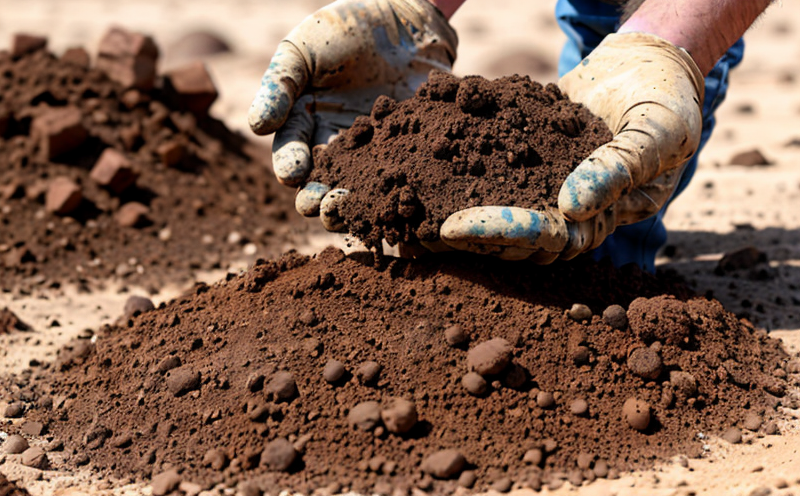ASTM D7400 Groundwater Monitoring Soil Testing
The ASTM D7400 standard is a critical tool in environmental testing, particularly relevant to industries such as mining. It specifies the procedures for the collection and preparation of soil samples intended for analysis under other recognized environmental test methods. This service ensures that accurate and reliable data are obtained from groundwater monitoring soils, which is essential for compliance with local, national, and international regulations.
The process involves a series of steps to ensure sample integrity before they are analyzed using subsequent tests. These include proper field sampling techniques, the use of appropriate containers to prevent contamination, and the preservation of samples at suitable temperatures until they can be processed in the laboratory. The ultimate goal is to provide a comprehensive understanding of soil characteristics that could influence groundwater quality.
The ASTM D7400 process starts with selecting an appropriate location for sampling, which should consider factors such as potential contaminant sources and hydrogeological conditions. Once collected, samples are transported under controlled conditions to the laboratory where they undergo preliminary examination. This includes visual inspection and documentation of the sample's condition.
After thorough preparation, the soil is analyzed further using additional testing methods tailored to specific objectives like identifying contaminants or assessing soil health. The results from these tests provide insights into potential risks associated with groundwater use and inform remediation strategies if necessary.
This service plays a pivotal role in ensuring that mining operations meet all regulatory requirements regarding environmental protection and public safety. By adhering strictly to ASTM D7400 guidelines, laboratories can ensure their findings contribute accurately towards decision-making processes related to site management practices.
Why It Matters
Environmental monitoring is crucial for understanding the impact of mining activities on surrounding ecosystems and human health. Accurate data from groundwater monitoring soil tests help stakeholders make informed decisions about resource utilization, pollution control measures, and environmental restoration efforts. Properly conducted ASTM D7400 compliant sampling ensures that any subsequent analyses reflect true conditions rather than being skewed by improper sample handling.
Compliance with regulatory standards like those set forth in ASTM D7400 helps avoid costly penalties due to non-conformance or delays caused by disputes over the validity of test results. It also enhances reputation among clients and partners who value transparency and best practices within their supply chains. Furthermore, it contributes positively towards corporate social responsibility initiatives aimed at minimizing adverse impacts on natural environments.
Industry Applications
| Application | Description |
|---|---|
| Contaminant Detection | Detecting pollutants that may have leached into the groundwater from mining activities. |
| Soil Health Assessment | Evaluating the overall health of soil in and around mining sites. |
| Remediation Monitoring | Monitoring changes in soil composition during and after remediation projects. |
| Compliance Assurance | Maintaining adherence to all relevant environmental regulations. |
- Contaminant detection helps identify hazardous substances that could pose risks to both the environment and public health.
- Evaluating soil health assesses whether there has been any degradation caused by mining practices or natural processes.
- During remediation monitoring, changes in the chemical makeup of the soil can indicate successful treatment methods.
- Avoiding non-compliance with regulations protects against potential legal issues and financial losses.
Why Choose This Test
- The ASTM D7400 procedure guarantees consistent sample preparation, which is vital for obtaining accurate test results.
- By following this standard, labs ensure their findings are credible and accepted by regulatory bodies worldwide.
- This service supports compliance with international environmental regulations, enhancing overall credibility of the organization providing it.
- The detailed documentation provided during ASTM D7400 sampling helps track each step taken in handling samples, ensuring traceability throughout the process.
- It ensures that all soil samples collected meet rigorous quality control standards before being subjected to further analysis.
- The standardized protocol reduces variability between different labs performing similar tests on identical samples.
- Compliance with ASTM D7400 is essential for maintaining a high level of professionalism and integrity in environmental testing services.





